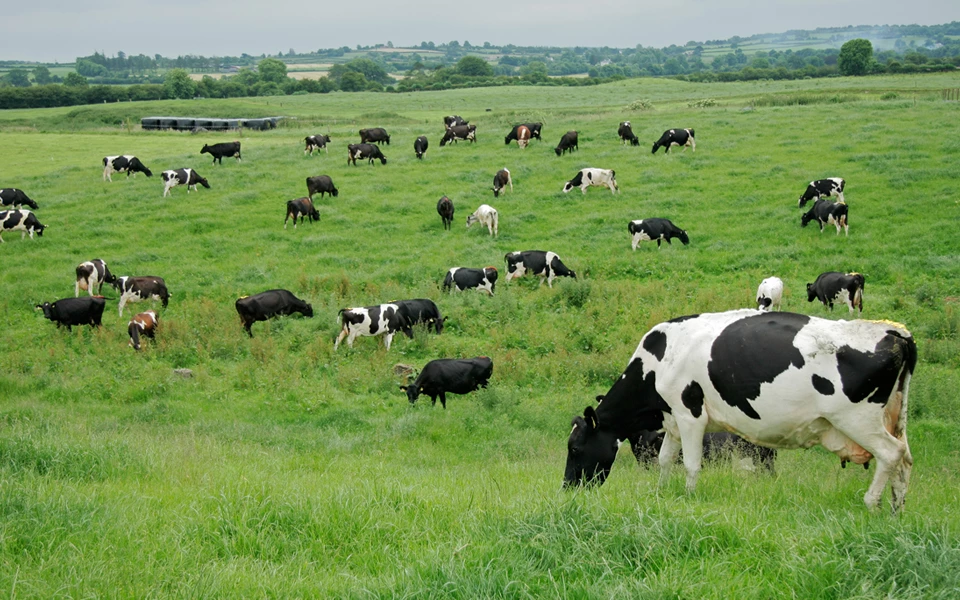
Partner Article
Increase in Agritech Adoption Required to Drive UK Farming Efficiency and Growth
With the global population forecast to hit nearly 10 billion people by 2050 , ever increasing food production must be weighed against growing demands on land, water and labour. With a 70% increase in food production required from now until 2050 , the agricultural industry will need to place agritech at the forefront of their strategy to drive to growth in yields while helping to meet increasingly stringent environmental obligations. No more is this challenge more pronounced than in the UK. Agfunder, an online venture capital platform dedicated to technology in agriculture reported that the UK agritech sector is worth more than £14 billion and employs over 500,000 people and the government has invested a further £90 million at the end of 2018.
The recently published ‘Future of Profitable Farming’ whitepaper, commissioned by Enterprise Ireland, highlights the importance of improving yield, efficiency and profitability whilst protecting the environment. A high demand for innovative and technological agricultural solutions has resulted in a significant number of Irish businesses working with UK farmers to achieve their growth and food production ambitions.
Shauna Higgins, Agritech Market Advisor for Enterprise Ireland in the UK notes that “Ireland’s agricultural links with the UK are centuries old and Irish businesses have a proven track record of servicing UK farmers, developing a reputation for durability and technical excellence. Irish agritech companies have the unique advantage of a strong understanding of the farming industry and its needs, which has empowered them to innovate and enhance traditional agricultural practices. Though technology has been applied to agriculture for some time, more UK farmers are turning to innovative agritech solutions to future-proof their businesses”.
One such company, Abbey Machinery, have developed a unique slurry management system that focuses on slurry preparation, application and minimising compaction enabling farmers to raise farm profitability. Abbey’s slurry tankers have been developed to enable flow control for precise application and is supported by an array of applicators that to pace the slurry to optimum effect. Abbey’s system also supports environmental considerations via the inclusion of monitoring technologies.
Irish agritech is also pioneering advanced techniques in Artificial Intelligence (AI), Internet of Things (IoT), robotics and sensor networks. For example, Irish company Moocall’s award winning products include IoT calving sensors, herd management software, and heat monitoring collars. Moocall’s calving sensor is currently monitoring cows, heifers and unborn calves in 40 countries across the globe, helping to significantly reduce mortality. In the area of GPS and mapping, AgriSpread has developed its fertiliser application equipment, the Section Control system, which ensures the uniform application of exact target amounts of product. This results in a reduction of input costs, increased yields, as well as minimising crop damage and environmental impact.
According to Frost and Sullivan research, about 70% to 80% of new farming equipment sold today is equipped with some form of precision farming component while an increase in agritech funding and innovation demonstrates the sector’s growth potential. Agritech is ultimately aimed at improving yield, efficiency and profitability. It has the potential to enhance traditional farming practices while also dealing with the challenges that are facing the agricultural industry today.
This was posted in Bdaily's Members' News section by Enterprise Ireland .
Enjoy the read? Get Bdaily delivered.
Sign up to receive our popular morning National email for free.








 Zero per cent - but maximum brand exposure
Zero per cent - but maximum brand exposure
 We don’t talk about money stress enough
We don’t talk about money stress enough
 A year of resilience, growth and collaboration
A year of resilience, growth and collaboration
 Apprenticeships: Lower standards risk safety
Apprenticeships: Lower standards risk safety
 Keeping it reel: Creating video in an authenticity era
Keeping it reel: Creating video in an authenticity era
 Budget: Creating a more vibrant market economy
Budget: Creating a more vibrant market economy
 Celebrating excellence and community support
Celebrating excellence and community support
 The value of nurturing homegrown innovation
The value of nurturing homegrown innovation
 A dynamic, fair and innovative economy
A dynamic, fair and innovative economy
 Navigating the property investment market
Navigating the property investment market
 Have stock markets peaked? Tune out the noise
Have stock markets peaked? Tune out the noise
 Will the Employment Rights Bill cost too much?
Will the Employment Rights Bill cost too much?